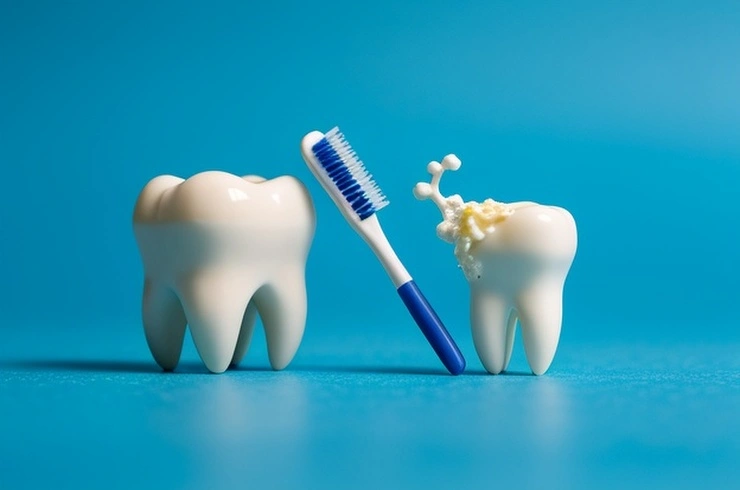
Tooth decay, often referred to as cavities, is a common dental problem that involves the destruction of your tooth structure. This damage can extend through both the outer, protective layer of your tooth, the enamel, and the softer, underlying layer known as dentin. But how exactly does this process begin?
The root cause of tooth decay lies in the interaction between the foods we eat and the bacteria naturally present in our mouths. When you consume carbohydrates—things like sugars and starches found in breads, cereals, milk, soda, fruits, cakes, and candy—they can linger on your teeth. The bacteria in your mouth then get to work, digesting these food particles and converting them into acids. These acids, along with bacteria, food debris, and your saliva, form a sticky film on your teeth called plaque. It's the acids within this plaque that gradually dissolve the enamel surface of your teeth, creating the small holes we know as cavities.
The good news is that tooth decay is largely preventable. Here’s how you can protect your smile:
Effective Oral Hygiene Practices
Brush Regularly: Aim to brush your teeth at least twice a day with a fluoride-containing toothpaste. Brushing after every meal and, most importantly, before bed, is ideal.
Floss Daily: Brushing alone isn't enough. Use dental floss or interdental cleaners to clean between your teeth every day. This removes plaque and food particles that your toothbrush can't reach.
Rinse with Fluoride: Incorporate a fluoride-containing mouthwash into your daily routine. Some rinses also contain antiseptic ingredients that help combat the bacteria responsible for plaque formation.
Dietary Habits for Healthy Teeth
Eat Balanced Meals: Prioritize nutritious and balanced meals, and try to limit snacking, especially on sugary or starchy foods.
Avoid Sticky Carbohydrates: Foods like candy, pretzels, and chips tend to cling to tooth surfaces, providing a prolonged feast for decay-causing bacteria. If you do eat sticky foods, brush your teeth soon afterward.
Professional and Supplemental Protection
Fluoride Boost: Talk to your dentist about supplemental fluoride options, which can further strengthen your tooth enamel.
Dental Sealants: Consider dental sealants for the chewing surfaces of your back teeth (molars). These plastic protective coatings act as a barrier against decay.
Fluoridated Water: Drinking fluoridated water, especially for children (at least a pint daily), provides an important source of fluoride that helps protect against cavities.
Regular Dental Visits: Don't skip your routine dental check-ups and professional cleanings. Your dentist can spot early signs of decay and provide preventive treatments.
Innovations in Decay Prevention
The field of dentistry is constantly evolving, with researchers exploring new ways to combat tooth decay. For example, studies have shown that chewing gum containing the sweetener xylitol can temporarily slow the growth of decay-causing bacteria. Additionally, scientists are developing materials that can slowly release fluoride over time, offering continuous protection when placed between teeth or in their pits and fissures. Even more exciting are the ongoing studies into toothpastes and mouth rinses that could potentially reverse and "heal" early cavities, offering a promising future for dental health.
Pro Tip
The content of the article is shared by netizens, please carefully identify it